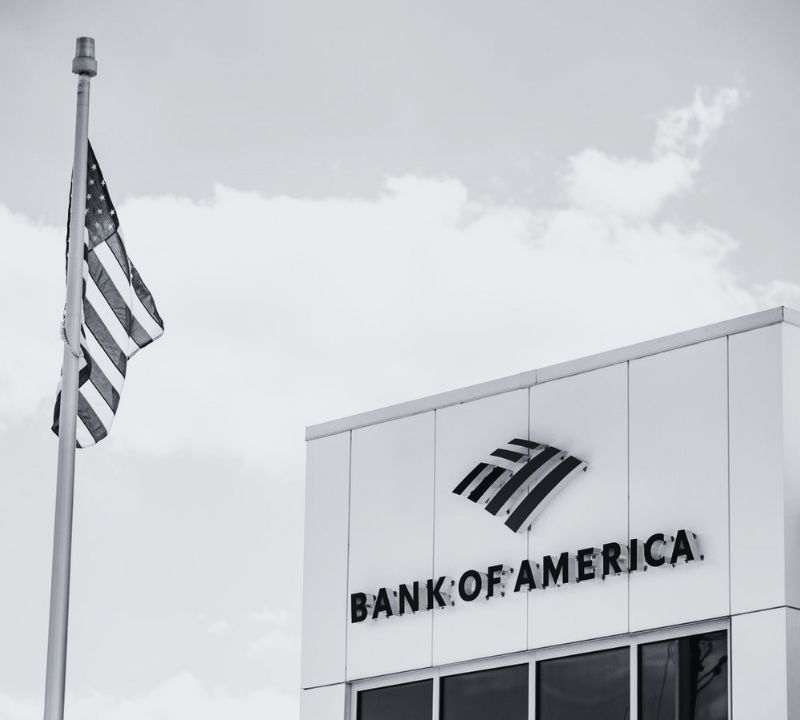Bank of America, one of the largest banks in the U.S., recently reached a major settlement in a class action lawsuit related to Automated Clearing House (ACH) fees. This case, called Bruin v. Bank of America, centers on claims that the bank charged customers improper fees for ACH transactions. The settlement is a noteworthy development in the financial sector and affects many customers who were impacted by these fees. Let’s discuss about this settlement in detail.
Class Action Lawsuit Background
It all started when a group of Bank of America account holders filed a class action lawsuit. They claimed that the bank had been unlawfully charging them fees for making ACH transfers. For those of you unfamiliar with the term, ACH transfers are electronic transfers made through the National Automated Clearing House Association network. This system allows money to be moved from one bank account to another.
The plaintiffs Tami Bruin & Eline Barokas in this case argued that they were unfairly charged for making “push” ACH transfers. Push transfers are when the account holder initiates a transfer, pushing money from their Bank of America account to an external account at a different bank. The lawsuit covers fees that were charged between April 4, 2018, and November 17, 2023.
Key Allegations Against Bank Of America
At the heart of this lawsuit were several serious allegations against Bank of America. The plaintiffs accused the bank of breaching its contract with account holders by imposing these ACH transfer fees. They also alleged that the bank had acted unjustly and unfairly in its business practices.

These fees, known as “ACH First Party Fees,” were highlighted as problematic by the plaintiffs. They asserted that the fees were not clearly disclosed or defined in the account agreements. This lack of transparency, they claimed, led them to incur charges they were not expecting or prepared for.
Furthermore, the plaintiffs argued that Bank of America violated the Electronic Fund Transfer Act (EFTA). This is a federal law that sets rules for electronic fund transfers, including providing clear and upfront disclosure about any fees or charges. The plaintiffs contended that Bank of America’s lack of clear communication about the ACH First Party Fees was a direct violation of this law.
So, in essence, the lawsuit was about more than just the fees themselves. It was about the bank’s alleged lack of transparency and violation of federal law. This case highlights the importance of clear communication and fair business practices in the banking industry.
Bruin v Bana Class Settlement Details
Bank of America has agreed to create an $8 million Settlement Fund. This is no small change. It’s a substantial amount of money that will compensate the class members who had paid these specific ACH transfer fees.
And, it doesn’t stop there. The bank has agreed to stop assessing these ACH First Party Fees for a period of at least five years. This decision is estimated to be worth around $21 million. Think about that. It’s a remarkable commitment that will save current and future Bank of America accountholders a significant amount of money over this period.
The $8 Million Settlement Fund
The $8 Million Fund is the money that Bank of America has agreed to create as part of its settlement. Class members, or those who paid the ACH First Party Fees, will be compensated from this fund.
The amount each individual receives will depend on the number of eligible ACH fees they paid. While the payments will vary, each class member is guaranteed to receive at least $2. If you are a current Bank of America customer, you will receive your settlement payment directly to your account. Those who no longer have a Bank of America account will receive their payment by check.
Other Settlement Cases:
Fee Abatement & It Affects On Accountholders
What about the fee abatement? This refers to Bank of America’s decision to stop charging the ACH First Party Fees. This will be implemented for a period of at least five years. It’s a significant move that will have a substantial impact on accountholders.
Imagine you are a Bank of America customer who frequently makes push ACH transfers. The fee abatement means you won’t have to worry about those pesky fees for at least five years. You’ll be saving money with every transfer you make. It’s a fantastic win for customers and a clear demonstration of how class action lawsuits can lead to tangible changes in business practices.
Eligibility Criteria For Class Members
Who can benefit from this settlement? The court has defined a specific group of individuals as eligible class members. These are individuals who had a consumer checking and/or savings account with Bank of America and who paid certain ACH transfer fees for their “push” transfers to their own external accounts. The time period covered by the lawsuit is from April 4, 2018, to November 17, 2023.
Perhaps you’re wondering what a “push” transfer is. It’s when you, as the account holder, initiate a transfer from your Bank of America account to an external account at a different bank. If you did this during the specified time frame and paid fees for it, you might be eligible for compensation.
Distribution Of Settlement Payments
Now that we’ve covered eligibility, let’s talk about how the settlement payments will be distributed. The payments will be proportional, based on the number of eligible ACH fees paid by each class member. This means that the more fees you paid, the larger your share of the settlement fund will be. However, every class member is guaranteed to receive at least $2.

The method of payment will also depend on your current banking status. If you’re a current Bank of America customer, the settlement payment will be credited directly to your account. But, if you no longer bank with them, you’ll receive a check in the mail.
Legal Proceedings & Court Approval
Getting to this point hasn’t been a straightforward journey. The settlement follows nearly three years of active litigation. There were motions to dismiss and extensive discovery on both sides. Despite Bank of America’s denial of any wrongdoing, the bank agreed to the settlement to avoid the costs and potential risks associated with continued litigation.
The court granted preliminary approval of the settlement on November 17, 2023, and final approval was granted on May 14, 2024. This means that the court has reviewed and agreed to the terms of the settlement, ensuring that it is fair and adequate for the class members.
Conclusion
This case affects more than just the people who paid ACH First Party Fees during the specific period—it has a bigger impact on all Bank of America customers. By agreeing not to charge these fees for at least five years, the bank is helping many people save money.
It also reminds us of how important it is to understand the fees tied to our bank accounts. As customers, we deserve clear information about any fees or charges. This case is a message to the banking industry that honesty and fair practices matter.


